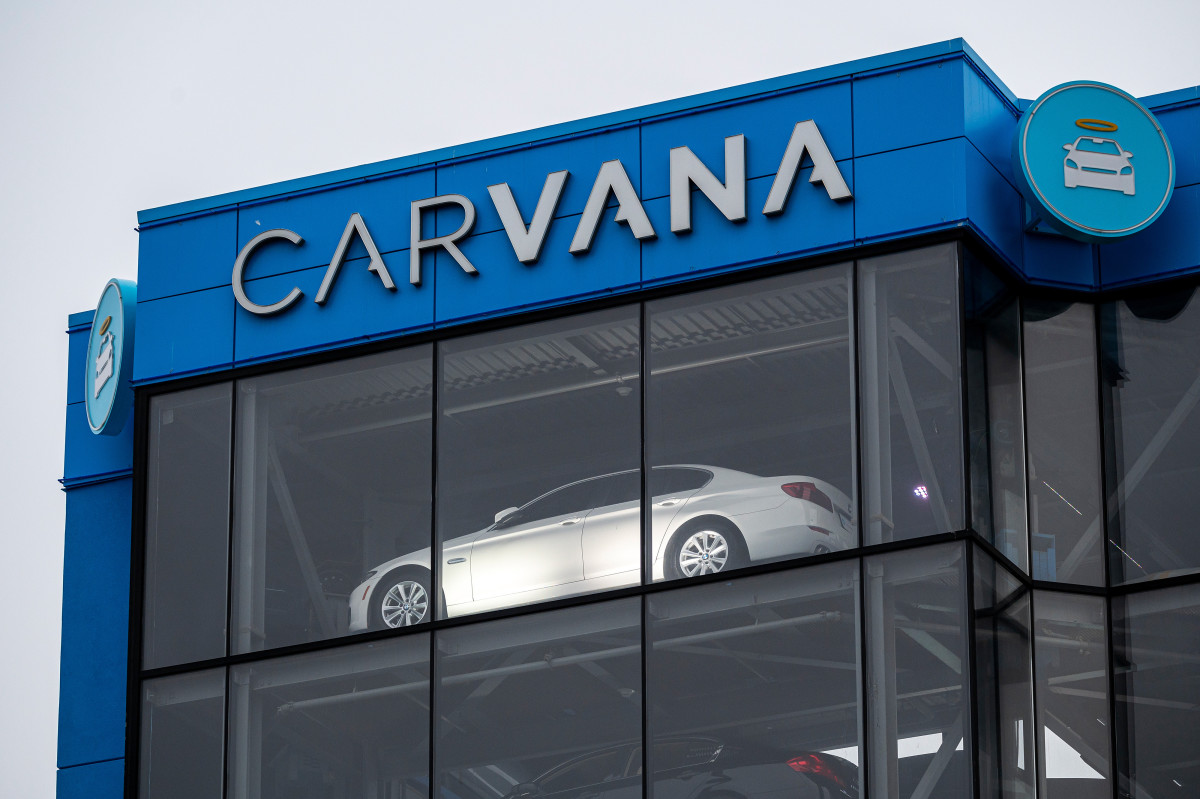
For an alleged zombie, Carvana (CVNA) has been looking pretty healthy lately.
A couple of years ago, equity research firm New Constructs slapped the online used car retailer with a "Walking Dead" label, saying the company had "failed to generate positive free cash flow in any year since going public in 2017."
The so-called “Amazon of car dealers” was taking aggressive measures, such as laying off thousands of employees, to keep the lights on.
Carvana's executive team said they would forgo their salaries for the remainder of 2022 to contribute to the severance pay for departing employees.
And many unsatisfied customers didn't hesitate to share their displeasure on social media.
But then that zombie started showing signs of life.
Carvana rebounded in 2023 with a 1,191% surge, generating $1 billion in cash and achieving robust double-digit growth.
What a difference two years can make-- 24 little months later, the company is now in the driver's seat, with shares soaring more than 30% at last check and founder and CEO Ernie Garcia declaring that "Carvana is stronger than ever."

Getty Images
Carvana CEO: 'We got better'
The company released its fourth-quarter results on Feb. 22, posting a loss of $1 per share, compared with a loss of $7.61 a year ago. Revenue totaled $2.4 billion, compared with $2.8 billion a year ago.
Analysts surveyed by FactSet expected the company to report a loss of 85 cents per share on $2.6 billion in sales.
"The last two years have been initially characterized as negative for Carvana," Garcia told analysts during the company's earnings call.
"In early 2022, we took a quick trip from a company that was perceived to be able to do a little wrong to one that was perceived to be able to do little right," he said. "That wasn't a fun transition for anybody."
Garcia added that it's very hard for a group to go through a period like the last two years at Carvana "and not disintegrate under the pressure."
"We didn’t disintegrate," he said. "We thought, we came together, and we got better."
Looking ahead, the company forecast adjusted EBITDA--earnings before interest, taxes, depreciation, and amortization--significantly above $100 million.
EBITDA indicates how well a company manages its day-to-day operations, including core expenses such as the cost of goods sold.
"Last night, Carvana posted the firm's fiscal fourth-quarter financial results," wrote Real Money columnist Stephen Guilfoyle. "They were lousy. Again. That said, the company is inching its way closer to profitability, showed improved gross margin per unit, and issued a 'not so bad' outlook."
Analysts reacted to the results--particularly the first-quarter forecast--by adjusting their price targets for the Tempe, AZ-based company.
RBC Capital Markets analyst Brad Erickson upgraded his rating on Carvana to market perform from underperform and boosted his price target to $45 from $24.
Erickson said the results "fundamentally mixed" and cited the fourth-quarter miss on units sold, revenue and EBITDA.
Carvana stock analyst: 'We remain cautious'
A short squeeze has partially driven Carvana’s recent stock surge, and Erickson said that the much stronger first-quarter EBITDA outlook “trumped all of it and is driving the squeeze.”
As of the last update on Jan. 31, short sellers held 33.5 million shares of Carvana short, representing 43% of the share float (shares available for trading). Based on its average daily trading volume, short sellers would take 6.1 days to cover their bearish bets.
Erickson said the company continues to show outsized gross profit per unit (GPU) improvement and is giving bulls hope of being on the doorstep of a bigger return to volume growth, though unit growth will likely remain modest through fiscal 2024.
More Automotive:
- Analysts unveil Rivian stock price targets ahead of earnings
- Why Mazda is going slow into electric vehicles
- Analyst revamps Ford stock-price target after earnings
"All in, despite the recent cost and debt restructuring successes, we remain cautious and opt to stay on the sidelines until we see clearer evidence of sustained cash flow improvement," he said.
Wedbush analyst Seth Basham raised his price target on Carvana to $60 from $50 but kept a neutral rating on the shares.
Carvana’s fourth quarter results were mostly in line with expectations on the top and bottom lines, but he also cited the first quarter EBITDA guidance
“We give Carvana credit for impressive improvements in operations to drive what now appear to be mostly sustainable GPUs even with a transition to growth, with the company indicating that ramp costs...being minor and likely being offset by leverage on reconditioning center fixed costs,” Basham wrote.
He added that the debate on Carvana will likely center on leverage potential on growth and medium-to-long-term sales and margins prospects.
"As Carvana needs to grow immensely to justify its valuation, we maintain our neutral rating but raise our estimates and increase our target price," Basham said.
Related: Veteran fund manager picks favorite stocks for 2024







